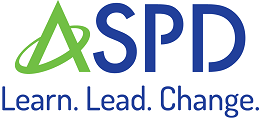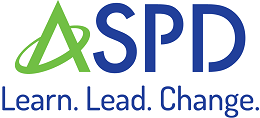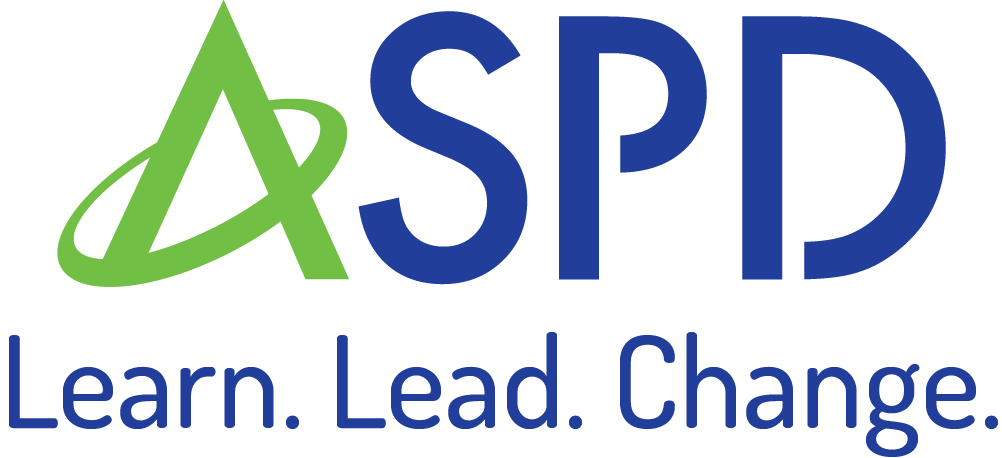STAGES OF ENGLISH LANGUAGE DEVELOPMENT
level 5
Advanced Fluency
At this level, language learners can communicate effectively in both social and academic contexts. They demonstrate near-native fluency, though occasional errors may still surface in idiomatic language, complex grammar, or culturally specific references.
At this stage, students can read and analyze grade-level texts across content areas, synthesize information, and write extended pieces with logical organization. They demonstrate a strong command of academic vocabulary and can use language to argue, persuade, and explain in detail.
By the end of this level, while still developing full mastery which considered by many to be a life-long activity, these learners can and do function with a high degree of independence in using the new language. They may continue to need to refine pronunciation, style, and nuanced language use, but they are generally equipped to succeed academically alongside their native English-speaking peers.
While language learners at the end of Level 5 have a high degree of language proficiency, it is common that these students will continue to need a variety of supports, particularly if the language used demands knowledge of finer principles of English grammar and usage, or if words include gradated mean (e.g., frigid, freezing, cold, cool...), or when meaning is dependent on a cultural context (e.g., "the colonies" referring to the founding of America and the original 13 colonies, "OK, Rapunzel" referring to the length of someone's hair, "Go west, young man" referring to the expansion, gold rush, and search for wealth and prosperity.
Read below to expand this information.
Details: Level 5 - Advanced Fluency
General Overview
Students at the Advanced Fluency stage are approaching native-like proficiency in English. They can understand and use complex language, including academic and abstract concepts, with relative ease. They can participate fully in grade-level academic tasks across content areas. While they may still have a slight accent or make occasional, minor errors (especially with highly idiomatic or culturally nuanced language), their English skills generally do not hinder their academic performance. This stage signifies a high level of English proficiency, often taking 5-7 years or more to achieve.
Scenario
Student: Kenji, Grade 4
Background: Kenji was born in the U.S. His parents are from Japan, and Japanese was the primary language spoken at home until he started preschool. He attended an English-speaking preschool and has been in U.S. public schools since Kindergarten. He is a quiet, observant, and diligent student who always tries his best. While he speaks English fluently in most social situations, he sometimes hesitates in academic discussions or when asked to elaborate on complex topics, not due to lack of understanding, but perhaps a combination of personality and ensuring his language is precise.
Classroom Experience: During a literature circle discussion about a chapter book, Kenji's group is analyzing a character's motivations. The teacher poses a question: "Why do you think the main character made that difficult decision, even though it had negative consequences for others?" Kenji listens as other students offer initial ideas. He then thoughtfully adds, "I think the character was probably weighing the immediate safety of his family against a more abstract principle, like justice for the community. It seems like he prioritized the tangible, short-term benefit, perhaps because of past experiences where long-term ideals didn't materialize as expected." His language is precise, and he uses academic vocabulary like "abstract principle" and "prioritized." He might pause briefly to select the most appropriate word. Internally, he's fully processing in English, focusing on the nuances of the text and the discussion. He might wonder if "materialize" was the perfect verb or if there was a more common way to phrase his idea, but he moves forward. He’s comfortable with the give-and-take of the discussion but prefers to formulate his thoughts carefully before speaking. He excels in writing, where he has more time to refine his language.
Social-Emotional Elements: Kenji is well-integrated socially and academically. His quietness is more a reflection of his personality than language insecurity. He might still feel a slight pressure to be "perfect" in his language use, especially in more formal academic settings. He benefits from encouragement to share his insightful ideas and reassurance that his contributions are valuable, even if he takes a moment to articulate them.
What Students Can Do
- Listening (Input/Processing):
- Can understand complex speech, including abstract ideas, nuanced arguments, idiomatic language, and lectures on a wide range of academic topics.
- Can comprehend most social and academic discourse with ease, similar to native English-speaking peers.
- Effectively processes extended, linguistically complex information.
- Speaking (Output):
- Words/Phrases: Uses a rich and varied vocabulary, including sophisticated academic and technical terms, and idiomatic expressions appropriately.
- Language Forms: Demonstrates mastery of complex grammatical structures with consistent accuracy. Errors are infrequent and minor, typically not patterned, and do not impede communication.
- Sentence Types: Produces a wide variety of complex and sophisticated sentence structures fluently and flexibly.
- Discourse: Can participate effectively and fluently in any discussion or debate. Can deliver well-structured, articulate presentations. Can use language for a variety of functions (e.g., persuading, hypothesizing, critiquing) with precision and nuance.
- Reading (Input/Processing):
- Can read and comprehend a wide range of complex grade-level and above grade-level literary and informational texts with understanding comparable to native English-speaking peers.
- Can analyze texts for subtle meanings, author's craft, rhetorical devices, and complex themes.
- Reads fluently and with good comprehension across genres.
- Writing (Output):
- Words/Phrases: Uses precise and sophisticated vocabulary appropriate to the topic and audience.
- Language Forms: Demonstrates strong command of English grammar and complex syntactic structures. Uses a variety of cohesive devices to create well-organized and coherent extended texts. Errors are rare and minor.
- Sentence Types: Writes a full range of sentence structures with control and stylistic variation.
- Discourse: Can produce well-developed, organized, and coherent essays, reports, and other academic texts across content areas. Can adapt writing style to different purposes and audiences. Demonstrates critical thinking and analytical skills through writing.
Instructional Strategies
- Listening: Engage students in analyzing complex auditory information, such as documentaries, academic lectures, and debates. Discuss nuances of language, tone, and perspective
- Speaking: Provide opportunities for leadership in discussions, debates, and presentations. Encourage sophisticated language use and rhetorical strategies. Offer platforms for public speaking.
- Reading: Challenge students with complex, authentic texts from various genres. Focus on critical literacy, analysis of literary elements, and synthesis of information from multiple sources. Encourage independent research.
- Writing: Assign complex writing tasks requiring research, argumentation, and sophisticated analysis (e.g., research papers, literary critiques, persuasive editorials). Teach advanced writing techniques, including voice, style, and audience awareness. Provide opportunities for extended writing projects.
Students at WIDA's "Bridging" (and moving into "Reaching") level typically:
- Listening/Reading (Interpretive): Understand and interpret complex oral and written English on a wide range of academic and social topics, including abstract and nuanced information, similar to English-proficient peers.Can synthesize information from multiple sources. Vocabulary is extensive and specialized.
- Speaking/Writing (Expressive): Communicate effectively and fluently using precise language, complex grammatical structures, and appropriate register for diverse academic and social contexts. Can produce well-organized, detailed, and sophisticated discourse. Errors are minimal and do not affect communication. "Reaching" indicates performance comparable to English proficient peers without needing language support.
WIDA 2020 Resources
These links should open the WIDA 2020 Frameowrk and Standards document to the specified page when clicked. This may not work in all browsers.
| Language Expectations, Functions, and Features | Performance Level Descriptors |
|---|---|
| Gr K (p. 44) | Gr K (p. 57) |
| Gr 1 (p. 64) | Gr 1 (p. 79) |
| Gr 2-3 (p. 86) | Gr 2-3 (p. 101) |
| Gr 4-5 (p. 108) | Gr 4-5 (p. 135) |
| Gr 6-8 (p. 142) | Gr 6-8 (p. 171) |
| Gr 9-12 (p. 180) | Gr 9-12 (p. 209) |
Students at ELPA21 Level 5 demonstrate English language proficiency by:
- Participating fluently and effectively in demanding academic discussions, collaborative projects, and presentations, often indistinguishable from native English-speaking peers.
- Understanding and using a wide and nuanced range of academic and technical vocabulary with precision and flexibility.
- Comprehending and critically analyzing complex, abstract, and linguistically dense oral and written texts across content areas.
- Expressing complex ideas, arguments, and analyses with clarity, coherence, and precision in speaking and writing, employing sophisticated linguistic resources.
- Producing high-quality, well-structured written work for a variety of academic purposes, demonstrating strong command of English grammar, mechanics, and style.
ELPA21 emphasizes language use in content areas; at this level, students can engage in all grade-level academic tasks with a high degree of autonomy and success, requiring little to no language-specific support. They are on par with their English-proficient peers.
Second Level Information
Linguistic Features
Students have a near-native command of English grammar and vocabulary. They can understand and use idiomatic expressions, humor, and cultural references appropriately. They can manipulate linguistic structures for stylistic effect (e.g., varying sentence structure, using rhetorical devices). Any remaining errors are typically unsystematic and characteristic of advanced learners fine-tuning their skills, or may be related to very specific, low-frequency items.
Common Challenges
While highly proficient, students may still encounter challenges with:
- Highly specialized or archaic academic vocabulary.
- Subtle cultural nuances or historical connotations of language.
- Understanding complex humor or sarcasm that relies heavily on shared cultural knowledge.
- Occasional "fossilized" errors from earlier stages of acquisition, though these are rare and usually don't impede meaning.
- The cognitive load of performing at a high academic level in a second language, even when fluent, can sometimes be greater than for native speakers, especially under pressure or with very dense material.
Nuanced Instructional Adaptations
- Content Differentiation:
These advanced language learners are near native proficiency.
- Provide access to above grade-level and highly complex texts to continue language growth. This one is also made longer to see how the nested list handles the wrapping with the defined CSS rules.
- Encourage independent research on topics of interest, requiring synthesis of multiple, sophisticated sources.
- Offer opportunities for students to explore leadership roles in academic tasks.
- Assessment Differentiation:
- Assess using tasks that require sophisticated critical thinking, analysis, and synthesis (e.g., extended research papers, detailed critiques, leading complex discussions).
- Focus on higher-order thinking skills and the quality of argumentation and analysis.
- Encourage self-assessment and reflection on learning.
- Enrichment and Extension:
- Encourage participation in activities like debate clubs, school newspapers, literary magazines, or advanced placement/honors courses.
- Introduce advanced literary analysis, rhetorical analysis, and studies of etymology or linguistics.
- Support exploration of language for creative expression (e.g., poetry, playwriting).
- Discuss nuances of register, tone, and style in various forms of communication.
- Focus on Language for Specific Purposes: If relevant, help students develop language skills for specific future academic or career paths (e.g., scientific writing, legal discourse, business communication).


